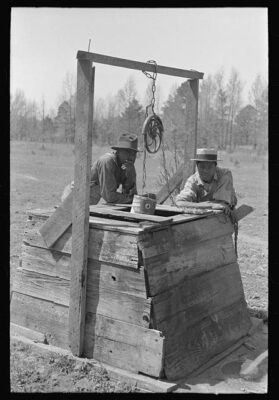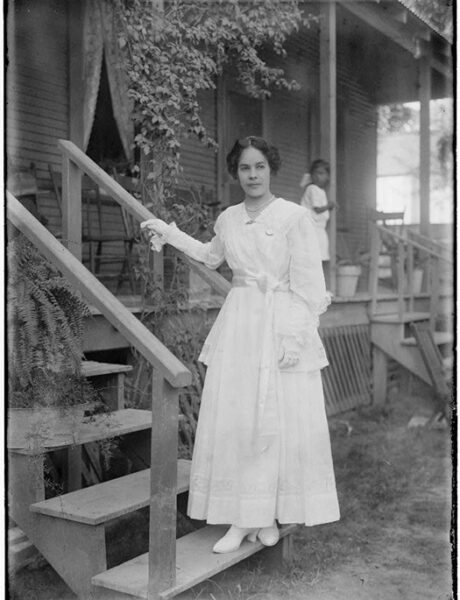Southern Legitimacy Statement: What could be more Southern than a poem about Jesus? Well, okay: I grew up off the North Carolina coast and spent my childhood summers barefoot, hopping back and forth from the blazing-hot black asphalt of the road and the sandspur thickets along its sides. Despite those memories, I still kick off my shoes whenever possible.
Jesus Take the Bus
Jesus hates those fat-ass trucks, their swagger
and their thuggish ways in parking lots, those grilles
like muzzles on a fighting dog. He rides the bus,
where old bums gravitate to him like moons pulled
into his orbit and promptly fall asleep, exhaling
beery breath into his face. Christ leans against smudged
glass, glares glumly at the rainy street, at a white Ford
looming like an ice floe beside a cringing Honda at the light.
The owner of that truck works night shift, cranks the music up
as he drives home so he won’t crash. Jesus isn’t fooled
by rowdy lyrics, feels the sadness wafting off the driver
like a mist. His mom has cancer twisting through her
like a muscadine gone wild. Last night his wife said no
to sex again, told him to lose his gut and grow some hair.
He hates his job, wishes he’d finished high school, wishes
his brother would move back from Texas and help out.
But the man loves his truck, the cool bubble high above
the steaming asphalt, the way its sparkling windows lend
the morning extra shine. He loves that country station
on his radio. Loves the roar of the engine when he revs it
at the light. Loves the silver grille that turns his ride
into something an astronaut might drive.
Jesus hates the truck and the music and the pulse of grief
that throbs between its notes. He hates thinking
of the driver’s mom as she groaned out of her recliner
to bake her special cake for Easter dinner, to hide
the plastic eggs she filled for all the grandkids,
even the ones she knows are just too old.
Jesus hates plastic and that whole Easter bunny thing.
And he hates that fish-shaped magnet slapped
on the truck’s bumper. Jesus loves Charles Darwin
and the many permutations of his work and all those finches.
But Jesus also loves the tired man who imagines
he’s Han Solo steering the Millennium Falcon home,
he loves the man’s mother and her teary smile as she watched
her grandkids – even the tallest boy, who felt a fool –
scramble for those eggs, shriek as they opened them.
Jesus loves the man’s wife and wishes he didn’t have to know
the guilty blaze that scalds her every time her boyfriend calls.
Wishes he didn’t know how much the man’s mom hurts,
how desperately she prays to die, and soon. Wishes
he didn’t know how desperately her son prays that she’ll live,
though deep inside he suspects she can’t.
Jesus wishes he didn’t have to feel the helpless thrum
of love for all of them, including the bum who slumps
against his shoulder, didn’t long to drag him to AA,
a dentist, and a therapist, though that would violate
free will – another creation he adores, despite
the dreadful ways it’s exercised.
It’s exhausting to love so much, and yet he must:
love is his one imperative, the key he wound
that wound him up.







